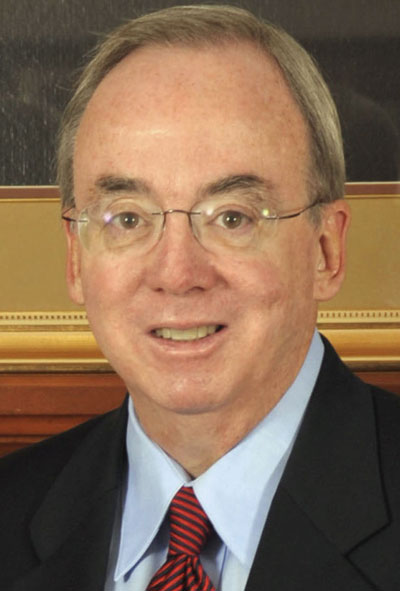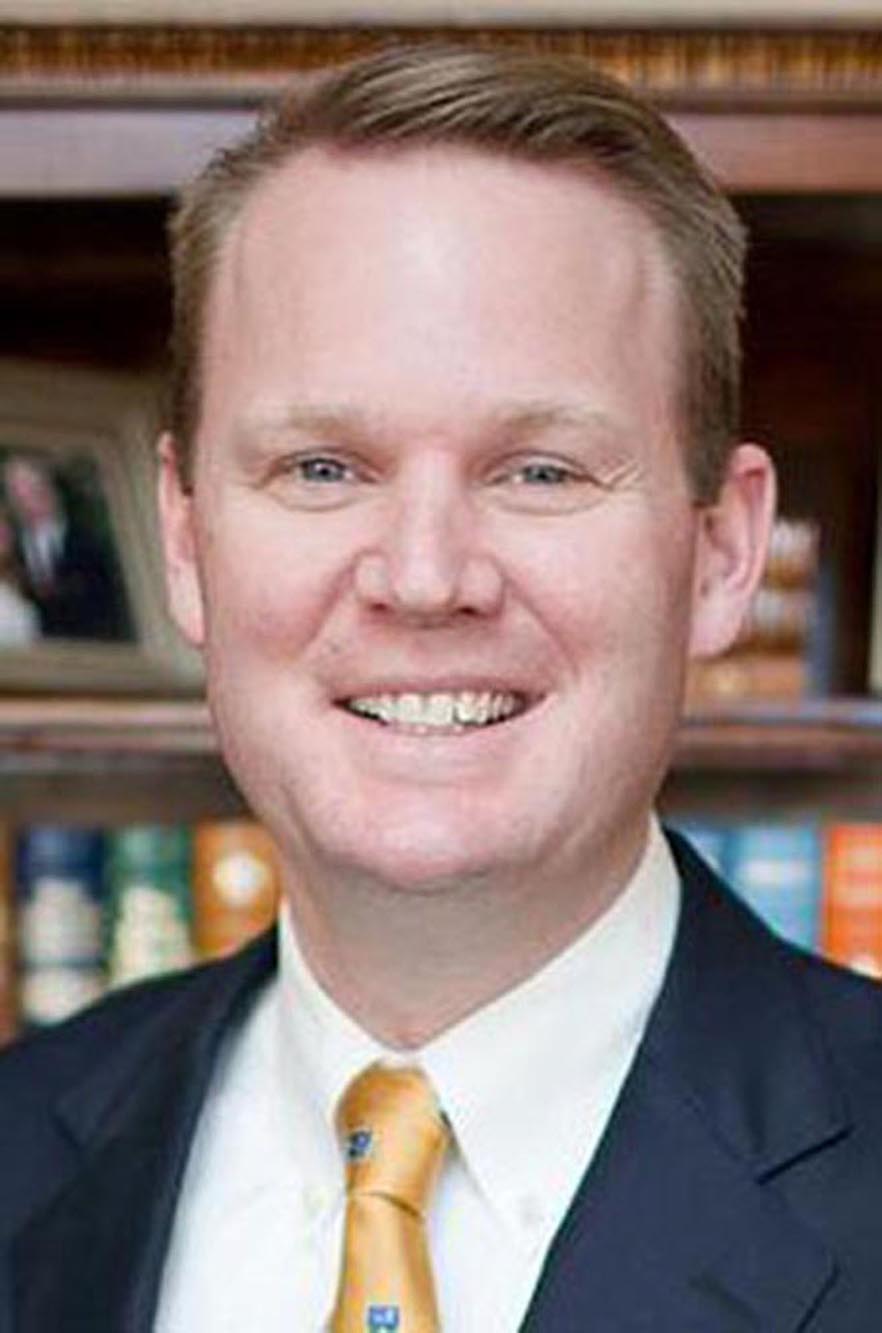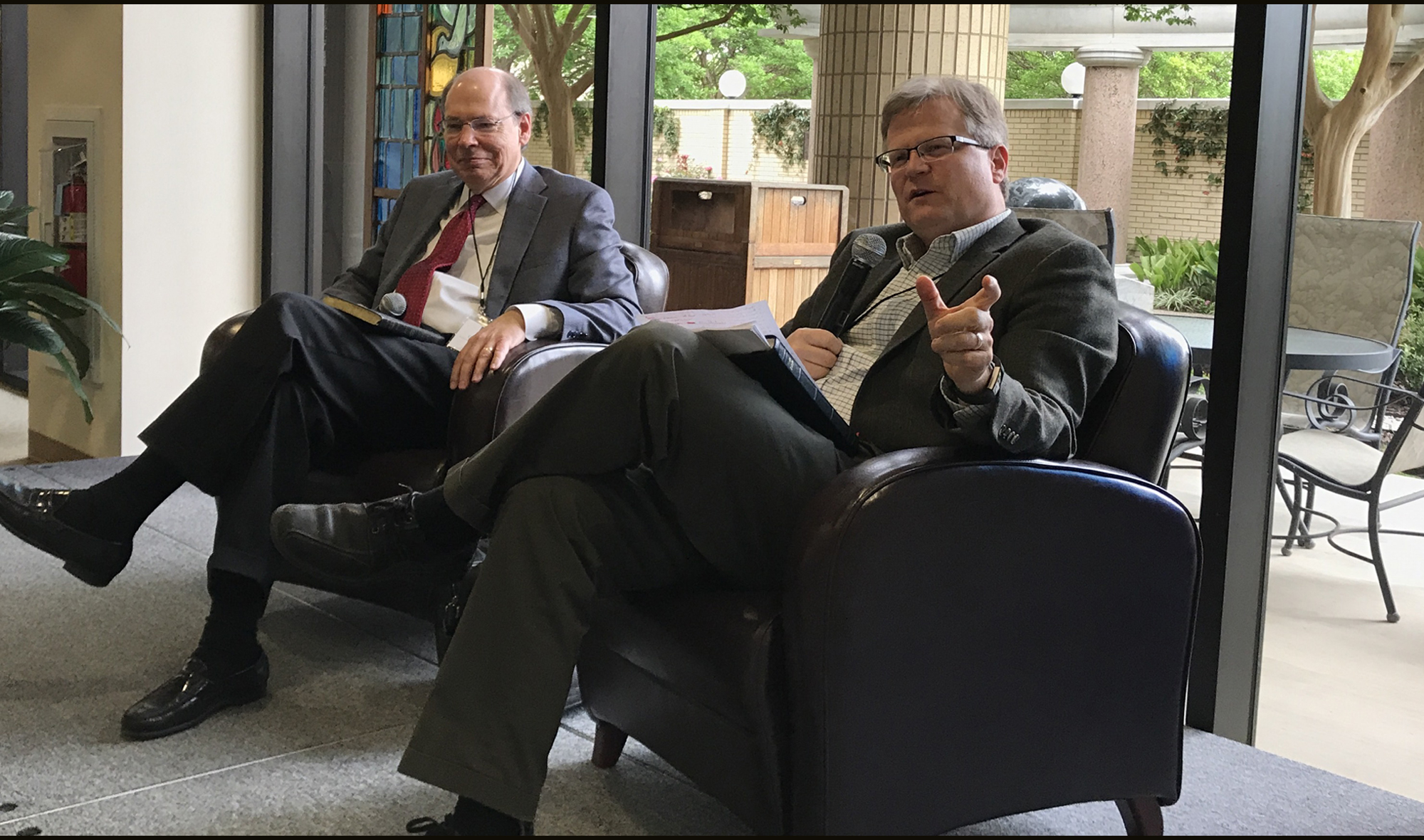
DEERFIELD, Ill. (BP) — Earlier this week I heard the news that Charles Caldwell Ryrie, well-known evangelical and baptistic theologian and longtime faculty member at Dallas Theological Seminary, had passed from this life into the presence of Christ (Philippians 1:21ff.).
Ryrie was a key member of that great Dallas Seminary faculty that, in addition to Professor Ryrie, included Bruce K. Waltke, S. Lewis Johnson Jr., Haddon Robinson and Howard Hendricks, among others. Hearing the news of his death brought to mind shaping times and periods in my Christian and theological formation, reflections resulting in a grateful heart that wanted to say “thanks be to God for Charles Ryrie.”
During my junior year as a college student, I was encouraged by leaders of the campus parachurch organization at my university to attend an Institute for Biblical Studies during the summer months of 1973 before the next fall semester. Heeding their advice led to a multi-week period that changed the course of my life. In that setting, for the first time, I began to study the Bible in a serious way and to read my first theology books.
Upon returning to the university that fall, my newfound reading guide led me to “A Survey of Bible Doctrine” (Moody, 1972) by Charles C. Ryrie. This brilliant theologian, with a Ph.D. from the University of Edinburgh, had put together a very readable introduction to the basics of Christian teaching regarding the Trinitarian God, holy Scripture, Jesus Christ, the Holy Spirit, salvation and Christian life, the church, and last things, a book that was most appropriate in content and depth for that particular stage in my life. After completing this book, I was hooked. I wanted to read and learn more theology and Dr. Ryrie was to become one of my early teachers through his prolific writings.
I soon read “Basis of the Premillennial Faith” (Loizeaux, 1953), which introduced me to the subject of eschatology. The institution where I currently serve has a Statement of Faith that affirms premillennialism. While my own articulation of a premilllennial understanding of biblical interpretation now differs somewhat from what I initially learned from Professor Ryrie’s writings, I nevertheless remain a premillennialist in conversation with important concepts I learned from that 1953 publication.
Ryrie’s book led me to read his predecessors, Lewis Sperry Chafer and John Walvoord, along with Alvah J. McClain. Ryrie’s work paved the way for me to read Craig Blaising, Darrell Bock, George Ladd, Anthony Hoekema and many others who fine-tuned my thinking about theology in general and eschatology in particular. I appreciated learning that Ryrie reshaped and restated understandings of the “new covenant” and the “kingdom of God” from what J.N. Darby, C.I. Scofield, Chafer, Walvoord and other premillennial theologians had taught. Ryrie thus advanced the thinking of those who had gone before him, which paved the way for me to think afresh, to develop beyond and build upon Ryrie’s work.
Ryrie’s work on “The Holy Spirit” (Moody, 1965) provided the next rung on the ladder in my reading plan, followed by “Balancing the Christian Life” (Moody, 1969). Both books were informative for my basic understanding of the third person of the Trinity and his shaping work in our lives. I went on to write two master’s theses at two different institutions on the New Testament’s teaching on the themes of the Holy Spirit and the Christian life. As with my reading of Ryrie’s eschatology, my conclusions in these two projects reflected both differences from and developments on Ryrie’s thought.
I went on to read a number of Ryrie’s 50 published volumes, including his 1999 work on “Basic Theology” (Moody). From that early reading list from my college days, I soon added the writings of Carl F.H, Henry, Millard J. Erickson, James Leo Garrett, W.T. Conner, E.Y. Mullins, Dale Moody, J.I. Packer, Thomas Oden, Alister McGrath, Stan Grenz, Karl Barth, Wolfhart Pannenberg, Donald Bloesch, D.A. Carson, Kevin Vanhoozer, Michael Bird and many more. Still, I owe much of my initial love for theology to the clearly-written, biblically-focused and carefully-communicated theology of Charles Ryrie.
During the years that I served at the First Baptist Church of Dallas during the 1980s, I had the privilege to meet Dr. Ryrie and hear him teach. He was a faithful churchman and member of that congregation. I found him to be a gifted teacher of the Bible, biblical themes and biblical doctrine. I confess that I have rarely turned to Ryrie’s works since those early and shaping years of my theological pilgrimage. I nevertheless know many who have continued to find his writings and the resources found in his widely-circulated Ryrie Study Bible to be extremely valuable and helpful.
Hearing the news this week of the homegoing of Charles Ryrie has brought a tear to my eye and joyful reflections to my mind and heart. Though I never took a formal class from Dr. Ryrie, I have invested more than 30 years in the work of theological education and Christian higher education with a love for Christian theology that began in many ways with reading those basic doctrine books from Ryrie’s pen. In doing so, his books became some of my first theology teachers, pointing me to paths along this fascinating journey that I have been blessed to travel. Prof. Ryrie was a thoughtful theologian, a stalwart defender of the truthfulness of the Bible and faithful follower of Jesus Christ. On this day, I want to join with many others in offering thanks to God for the life, ministry, writings and legacy of Charles Caldwell Ryrie.




















